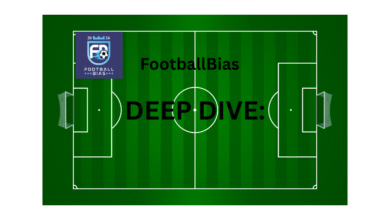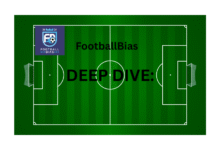How Wonderkid Syndrome took over Football
Lack of Patience in the Modern Game

Anthony Martial emerged from Lyon as one of Europe’s most promising teenagers. At 19, he moved to Manchester United for a reported £36 million, immediately labeled as a generational talent. Early flashes of brilliance in his debut season raised expectations, but inconsistencies and the immense pressure of performing in one of the world’s most scrutinized clubs quickly made him a target for criticism. Martial’s trajectory illustrates a common pattern in modern football: young players are thrust into high-pressure environments and judged not by their development, but by immediate results.
This phenomenon is known as “Wonderkid Syndrome.” A wonderkid is a player, typically aged 16 to 21, recognized as having exceptional potential. Clubs, media, and fans often expect immediate, world-class output from these players, leaving little room for natural growth or error. The syndrome reflects the impatience and hype surrounding youth talent in modern football.
Wonderkid Syndrome is often driven by social media amplification, inflated transfer markets, and tactical demands that require young players to deliver instantly. This combination creates an environment where long-term development is often sacrificed for short-term results, and potential is measured by immediate impact rather than process.
Modern football has created an environment where patience for young talent is in short supply. Transfer market inflation is one of the clearest drivers of this trend. Massive fees, like the £36 million Manchester United paid for Anthony Martial at just 19, instantly shift expectations from potential to immediate performance. Clubs demand rapid returns on these investments, leaving little room for error or gradual development. Beyond the financial pressure, top teams now compete globally to secure young prospects, signing players from multiple continents and creating a crowded environment in which opportunities are limited. When a teenager finally earns a place in the first team, every action is magnified, and a single mistake can be exaggerated and made to feel more consequential than it should be.
Social media and media hype amplify this pressure further. Every goal, error, or skill move is broadcast worldwide in real time, turning teenagers into global figures before they have fully matured as professionals. Fans expect highlight-reel performances in every game, overlooking the daily, incremental work that underpins elite development. Journalists and pundits contribute to the problem, endlessly comparing young players to established superstars and branding them as “the next Messi” or “the new Ronaldo.” For players like Martial, the constant narrative of instant greatness creates a cycle of heightened scrutiny and impatience.
Finally, modern tactical and managerial demands leave little space for gradual growth. Managers under relentless pressure to deliver results often cannot afford to allow young players time to learn through mistakes. At the same time, teenagers are increasingly asked to master multiple complex roles, from inverted full-back to false nine, early in their careers. The combination of financial stakes, public scrutiny, and tactical complexity means that young players are rarely given the space to develop at a natural pace, and Wonderkid Syndrome becomes almost inevitable.
Boján Krkić is a stark example of the human cost of Wonderkid Syndrome. Hailed as a prodigy at Barcelona, he made his first-team debut at 17 and was immediately labeled the “next Messi.” The media attention, fan expectation, and internal pressure at one of the world’s biggest clubs created a relentless environment in which any dip in performance was magnified. Despite his extraordinary technical ability, Krkić struggled with consistency, and every minor setback, whether due to form, tactical fit, or small injuries, became the subject of public scrutiny.
In his own words, Krkić has cited mental health struggles as a direct result of the pressures he faced. The constant need to meet sky-high expectations fostered performance anxiety, eroded confidence, and made it difficult for him to reconcile his personal development with the public image imposed upon him. He has described feeling isolated and overwhelmed, highlighting the fact that Wonderkid Syndrome extends beyond the field, it is a psychological burden as much as a professional one.
Krkić’s trajectory also illustrates the “failure to launch” phenomenon. After early hype, he was loaned out and moved between clubs without ever finding the stability to realize his full potential. His story underscores how hype, impatience, and early exposure can derail even the most talented individuals, producing consequences that are both professional and personal. It is a cautionary tale demonstrating why clubs and managers must carefully manage expectations and provide support for young players, protecting not only their development but also their mental well-being.
While Krkić illustrates the dangers, Ousmane Dembélé exemplifies how structured support and the right environment can reverse a trajectory initially marked by perceived failure. Dembélé burst onto the scene at Borussia Dortmund, quickly earning acclaim as one of Europe’s most talented young forwards. His move to Barcelona carried massive expectations, but recurring injuries and relentless media scrutiny led to widespread perception of him as a “failed wonderkid.” Like Krkić, he faced the combined pressures of hype and public judgement.
Dembélé’s story shifted when he moved to PSG. In Paris, he entered an environment with clear tactical roles, strong medical support, and less immediate media pressure, allowing him to focus on performance rather than perception. Freed from the weight of Barcelona-era expectations, he gradually regained consistency, rebuilt confidence, and matured as a professional. The results speak for themselves, he played a central role in leading PSG to a Champions League title and ultimately won the Ballon d’Or, achieving a level of success many had prematurely written off.
His journey illustrates how clubs, managers, and environments can mitigate Wonderkid Syndrome. Gradual integration, psychological support, mentorship, and protection from media scrutiny allow players to rebuild confidence, develop at their own pace, and ultimately reach their full potential. Dembélé proves that early setbacks, injuries, or public disappointment do not have to define a player’s career; with the right framework, perceived failure can transform into redemption and triumph.
Wonderkid Syndrome is an unavoidable feature of modern football, driven by hype, inflated transfer markets, and tactical pressures that demand instant results from young players. Anthony Martial and Boján Krkić illustrate the cost of these pressures: early promise overshadowed by scrutiny, inconsistent performances, and, in Krkić’s case, significant mental health challenges.
Yet, players like Ousmane Dembélé, Pedri, Jude Bellingham, and even Kylian Mbappé during his early years demonstrate that perceived failure is not inevitable. With the right environment, structured support, and patience, young talents can develop resilience, rebuild confidence, and reach, or even exceed the heights once expected of them. True potential is realized through process and mitigating Wonderkid Syndrome requires a collective effort from clubs, managers, and fans to prioritize long-term growth, mental well-being, and measured development over immediate spectacle and results.







